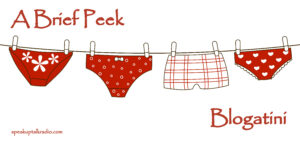Strengthen Your Writing Muscle: Stay on the Emotional Roller Coaster by Jenn Baljko

What happens when you sit down to write? You open your laptop or notebook, and meaningful words fly across the page, right? Sure…that happens in the best of moments.
What else happens? What happens in your body? It’s something that you may not have fully considered, but it impacts the story you’re telling in so many ways: You step onto an emotional rollercoaster, and it may turn your stomach upside down if you’re not aware of it.
Think about it for a second. You start up your laptop and greet the blank page. What do you feel in that moment? Excitement? Joy? Dread? Anxiety? Hope? Confidence?
And when you get to that part of the story that reminds you of a past experience, the part of the book you know you have to face but don’t know how to deal with it, what happens there? How do you encounter and work through the flood of emotions that rise up in the wake of vulnerability, shame, guilt, or grief?
How do you use grace, tenderness, integrity, and curiosity to write the hard parts and the easy parts of your book?
I experienced this emotional roller coaster firsthand when I was drafting my manuscript and often guide my writing mentees through the topsy-turvy ride. It’s not always fun because emotions are messy, and it takes practice and skill to navigate through them.
But with an adjusted attitude and a little bit of know-how, staying on the emotional roller coaster could strengthen your writing, improve your storytelling skills, and help you undercover a different kind of creative superpower.
Here’s how:
- Increased awareness of your emotional state gives you more material to work with. Not sure what to do with your sadness? Write through it. Feeling a flutter of joy? Write through it. Noticing a wave of anger? Write through it.
- Your sensory experience will hook readers. Authenticity as a writer, especially as a nonfiction and memoir writer, comes from a willingness to bravely show how you feel and trust that emotionally exposing yourself–with the right pacing, voice, and introspection–will enhance, not harm, your story or the connection you have with your reader.
- Emotional resilience makes authors human. As much as we want to be heroes or heroines sharing our adventure through life, what binds us to our readers and a broader audience is our humanness. Nothing is more human than developing a vocabulary to speak our collective emotional language.
So the next time you sit down to write, take stock of what emotions are present and ask them to join you on the roller coaster. Invite wonder to come along, too, and see what happens when you do. I promise…it’s a ride worth having, and if you’re lucky, you’ll throw your arms up and laugh with writing glee.
Jennifer (Jenn) Baljko is a mindful writing mentor and book coach. She is the lead author of Fierce Awakenings: Calling in Courage and Confidence to Walk Life’s Spiral Path and the author of The In Between: Journeying From Fear to Courage.
